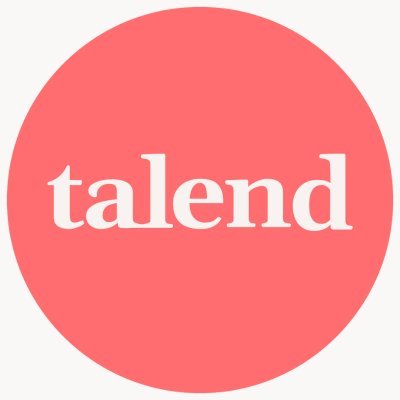About Airbyte
Airbyte is the open standard in data movement, and can be deployed self-hosted, cloud, or hybrid. Airbyte is used by 18% of the F500 and has over 25,000 community members.
About Stitch Data
Stitch Data is a cloud-based ETL platform owned by Talend since 2018. With row-based pricing and a managed service model, Stitch provides simple data integration but requires data to flow through their infrastructure with limited customization options.
Limitations of Using Stitch
Limited Flexibility
Stitch Data's cloud-only architecture significantly restricts deployment flexibility for organizations with specific infrastructure requirements. Without any on-premise or hybrid deployment options, companies must route all their data through Stitch's infrastructure, which can be a dealbreaker for organizations with data sovereignty requirements or strict security policies.
This vendor-controlled infrastructure model means you're entirely dependent on Stitch's availability and have no control over where your data is processed or stored.
Cost Uncertainty
The row-based pricing model used by Stitch Data creates significant budgeting challenges as your data volumes grow. Organizations frequently report unexpected cost overages when data volumes spike due to seasonal patterns, new data sources, or business growth.
This consumption-based approach makes it difficult to predict monthly costs accurately, and many users find themselves having to limit data replication frequency or exclude valuable data sources to stay within budget, ultimately compromising their analytics capabilities.
Connector Constraints
With only 140+ connectors compared to competitors offering 400-600+, Stitch Data's connector library leaves significant gaps in coverage, particularly for newer SaaS tools and specialized data sources. The platform's heavy reliance on the Singer framework, while providing some extensibility, limits the sophistication of custom connectors you can build.
Users report that creating custom connectors requires significant technical expertise despite the platform's positioning as a simple solution, and the lack of a visual connector builder means even basic API integrations require coding knowledge.
Benefits of using Airbyte
Control your data
Airbyte gives you complete control over your data infrastructure with flexible deployment options that adapt to your security and compliance requirements. Whether you need to keep sensitive data on-premise for sovereignty requirements, leverage cloud scalability, or implement a hybrid approach, Airbyte's single codebase architecture ensures consistent functionality across all deployment models. This flexibility helps organizations meet strict compliance standards like GDPR and HIPAA while maintaining full ownership of their data pipeline infrastructure.
Build without limits
With over 600 pre-built connectors and an AI-powered connector builder, Airbyte removes the traditional barriers to data integration. The platform's extensive connector library covers everything from modern SaaS applications to legacy databases and unstructured data sources. When you need a custom connector, the no-code Connector Builder and low-code CDK enable rapid development in hours instead of weeks. This is amplified by a vibrant community of over 1000 contributors who continuously expand the ecosystem, ensuring you're never blocked by connector availability.
Scale with confidence
Airbyte's predictable capacity-based pricing model means you can scale your data operations without worrying about surprise bills or budget overruns. Unlike consumption-based models that penalize growth, Airbyte's transparent pricing grows predictably with your infrastructure needs. Combined with enterprise-grade reliability featuring 99.9% uptime SLAs and the freedom to choose between deployment options, organizations can confidently scale their data operations without vendor lock-in concerns.
FAQs
1. How does Airbyte compare to Stitch in data integration and scalability?
Airbyte is an open-source ELT platform with 600+ pre-built connectors and support for both self-hosted and cloud deployments, built for enterprise-scale ingestion with full transparency and customization. Stitch, based on the original Singer project and now part of Talend, is a fully managed SaaS tool with fewer connectors and limited flexibility.
2. Which platform, Airbyte or Stitch, offers greater flexibility in deployment and control?
Airbyte offers much more deployment and infrastructure control: with Airbyte Flex you can run pipelines in self-hosted, cloud, or hybrid environments, retaining ownership over data residency, security, and compliance. Stitch runs only as a managed SaaS, so all processing happens in its environment, which restricts customization and governance options.
3. How do Airbyte and Stitch compare in cost and scalability?
Airbyte’s capacity-based pricing is usage-aligned and predictable, and the open-source version can be run for free on your own infrastructure. Stitch uses tiered pricing tied to data volume and number of sources, which can become expensive as pipelines, data size, or sync frequency grow.
4. Which is more developer-friendly, Airbyte or Stitch?
Airbyte is more developer-friendly, offering a Connector Development Kit, open APIs, and full source code access so engineers can build, extend, or debug connectors quickly. Stitch provides minimal customization and depends on the vendor for connector changes, limiting how much developers can adapt pipelines.
5. When should a data team choose Airbyte over Stitch?
Teams should choose Airbyte when they need scalable, flexible, open-source ingestion that can evolve with their infrastructure and compliance needs. Its 600+ connectors, capacity-based pricing, and hybrid deployment make it ideal for enterprises seeking transparency and control, while Stitch fits smaller teams that want a simple, fully managed solution.




%201.svg)





































.png)




.png)
.png)
.png)
.png)
.png)
.png)
.png)
.png)
.png)
.png)
.png)
.png)
.png)